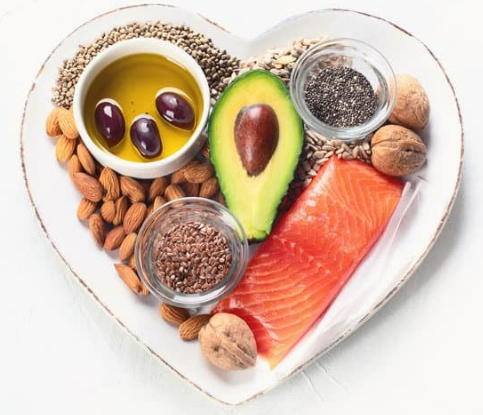Striking the right balance between the different forms of cholesterol in the blood plays a pivotal role in supporting heart health and reducing cardiovascular disease risk. Lower levels of low-density lipoprotein (LDL) cholesterol (often referred to as ‘bad’ cholesterol) and higher levels of high-density lipoprotein (HDL) cholesterol (often referred to as ‘good’ cholesterol) are ideal.
Conversely, high LDL and low HDL levels are more likely to result in the accumulation of plaque within the arteries, leading to potential blockages and restricted blood flow. If untreated, serious health consequences – including heart attack and stroke – can eventuate.
Unlike plenty of risk factors, such as age, genetics and family history, diet is one area we can modify, to support healthy blood cholesterol levels and reduce cardiovascular disease risk. Try our tips below!
Dietary tips for healthy blood cholesterol:
Enjoy More
- Healthy fats. Unsaturated fatty acids – found in extra virgin olive oil, oily fish varieties like salmon and mackerel, avocado, and nuts and seeds – are incredibly beneficial inclusions within a healthy diet! These foods promote healthy HDL cholesterol levels and help to reduce both LDL levels and inflammation, whilst simultaneously increasing our intake of a broad variety of other essential nutrients, including protein, vitamins and minerals.
- Fibre-rich foods. Soluble fibre – which as its name suggests, absorbs water in the intestine to form a gel-like substance – is particularly beneficial for healthy blood cholesterol. This is because LDL cholesterol particles bind to soluble fibre, enabling their excretion from the body. Many plant-derived foods including oats, barley, citrus fruits, legumes (including chickpeas, lentils and black beans), psyllium husk and chia seeds are rich sources of soluble fibre.
- Antioxidants. Fruits and vegetables are wonderful sources of antioxidants, including vitamin C, beta-carotene and catechins, which help to prevent the LDL oxidation involved in arterial plaque formation. For myriad health benefits, aim for two serves of fruit and at least five serves of vegetables daily, enjoying a variety of different colours, each and every day.
- Plant sterol-fortified foods. Plant sterols are naturally found – in small amounts – in plant-derived foods (unsurprisingly!) including fruits, vegetables, nuts and wholegrains. Consuming 2-3 grams of plant sterols per day – most feasibly achieved with plant sterol-fortified foods, such as carman’s cholesterol-lowering oats, burgen cholesterol-lowering bread and cholesterol-lowering weetbix. These plant sterols help to inhibit the absorption of dietary cholesterol, in turn lowering LDL cholesterol.
Consume Less
- Saturated fat. A high intake of saturated fat is associated with elevated LDL cholesterol. It’s commonly found in highly processed and fried foods, as well as high-fat cuts of pork, beef and lamb, skin-on cuts of poultry, animal fats such as tallow, lard and ghee, and full-fat dairy products (particularly butter, cream, milk and yoghurts). ‘Tropical’ oils – such as coconut and palm oils – are also very high in saturated fat, along with coconut cream, milk and yoghurt.
Saturated fats shouldn’t necessarily be excluded completely from the diet; however, to reduce cardiovascular disease risk, Australian Dietary Guidelines recommend that saturated and trans fats account for at most 10 per cent of a healthy person’s energy intake overall.
- Trans fat. Industrially-produced trans fats adversely affect blood cholesterol balance and are therefore best limited as much as possible. They can be found within ultra-processed foods such as commercially-produced cakes, biscuits, pastries, fried foods and processed meats.
For individualised dietary advice to support your cardiovascular health, book your first appointment with one of our wonderful Accredited Practising Dietitians today.
Written by Caitlin Branch, Student Nutritionist, and Amanda Smith, Accredited Practising Dietitian.
References:
Commonwealth of Australia. (2021). Summary of chronic disease. Nutrient reference values for Australia and New Zealand. Retrieved January 25, 2024, from https://www.eatforhealth.gov.au/nutrient-reference-values/chronic-disease/summary
Food Standards Australia New Zealand. (2016). Plant sterols. Retrieved January 25, 2024, from https://www.foodstandards.gov.au/consumer/nutrition/plantsterol
Juul, F., Vaidean, G., & Parekh, N. (2021). Ultra-processed foods and cardiovascular diseases: Potential mechanisms of action. Advances in Nutrition, 12(5), 1673-1680. https://doi.org/10.1093/advances/nmab049
Raymond, J. & Morrow, K. (2023). Krause and Mahan’s food and the nutrition care process (16th ed.). Elsevier, Inc.



